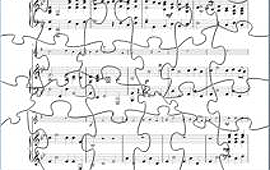> [Archived] Chronicles

Drivetime - October 21st, 2011
The godfather of World Music
Ravi Shankar, a name synonymous with sitar, but also with traditional Indian music, turned 91 this year. The legendary artist - born in Varanasi, South-East India, celebrated the event on stage, holding an extraordinary concert at the California Center of the Arts in Escondido, California on October 9th, 2011. This Evening with Maestro Ravi Shankar organized by the Foundation that bears the name of the beloved musician, was an irrefutable proof that he still has a lot to say, artistically. Throughout his impressive music career, Ravi Shankar proved to be a true ambassador of Indian culture, having worked so far with a series of important figures, including his compatriot, the conductor Zubin Mehta and George Harrison, one of the Beatles members, the one who called him 'the Godfather of World Music'.
The apple does not fall far from the tree
One of Ravi Shankar's daughters, Anoushka Shankar, follows in his footsteps, and is thought of as one of the most gifted young talents of today: the sitar, but also composition are among the main pursuits of the young artist who recently debuted, under 'Deutsche Grammophon' label, her seventh studio album entitled Traveller. It was released on October 14th, 2011, and it is already reviewed as one of the most interesting mixture of Indian music and sounds of Spanish flamenco. Speaking of his daughter, whom he himself had mentored into discovering the mysteries of the sitar, Ravi Shankar confessed that he is eagerly awaiting for 'the day when he is known as Anoushka Shankar's father', and the press in Great Britain's capital city - the city where the artist was born - agrees that this day is not quite so far into the future. For Anoushka Shankar - who will start on November 4th, 2011 a tour promoting her new album - 'Music represents the deepest level of spirituality achievable; I cannot reach it through meditation or yoga. It is a deep feeling that carries you far away.'
Daniel Barenboim and Liszt's music
Among the most recent CD's to have been released under 'Deutsche Grammophon' label, the one recorded by pianist Daniel Barenboim contains exclusively music by Franz Liszt - composer whose 200th birthday anniversary we honoured on October 22nd. On the album - recorded together with the members of Staatskapelle Berlin (the orchestra of the Berlin State Opera) conducted by Pierre Boulez - Daniel Barenboim performed the soloist score of the two Piano and Orchestra Concerts by Franz Liszt - the first in E-flat major, and the second in A major, but also two opposites from the compositions of the Hungarian composer: Consolation no. 3 and Valse oubliee no.1 in F-sharp major. The release of this album on October 7th is not the only autumn event in the career of the Argentinean-born artist: on December 1st he will take over the position of Music Director of the La Scala Theatre in Milan - position which Daniel Barenboim is to hold until 2016.
The happy nightmare of those from Igudesman & Joo
Of all the meanings assigned to music over the past two years, that of 'happy nightmare' is probably ... the weirdest: Igudesman & Joo - the well known duet that take a fresh approach to music, placed somewhere between classical and comedy - started, on October 20th, 2011, a tour to promote their album A Little Nightmare Music, which violinist Aleksey Igudesman and pianist Richard Hyung-ki Joo released in 2009. After a series of recitals to take place at this time in the United States of America, the Igudesman & Joo Nightmare Music will be heard in Russia, Germany, Turkey, Israel, Italy and Austria. A Little Nightmare Music is also the title of an opera 'in one irrevocable act' created by American composer Peter Schickele and a parody of A Little Serenade (The Serenade No. 13 for strings in G) composed by Wolfgang Amadeus Mozart. Pieces by Bach, Rachmaninoff, Mozart and Beethoven were chosen for the version produced by Igudesman & Joo, but also famous themes, reminding of famous characters such as James Bond. Personally, the structure of the album reminds me of The Nightmare before Christmas, the animated film by Tim Burton, in which the grotesque and humour are combined with sensitivity and ... good music.
'Can classical music be fun?' - this is the question that Australian magazine Limelight asked in one of its articles. Collaborations in the likes of 'Igudesman & Joo' come to prove that an association between sobriety and humour is possible in classical music.Although it is known that humour is a serious business, few know the recipe for combining the two concepts. But if you master your act, art will allow you to venture. As Bach used to say: 'It is easy to play a musical instrument: all you have to do is touch the right key at the right time and the instrument will play itself.'
Translated by Florina Sămulescu and Alina Popa
MTTLC, Bucharest University














